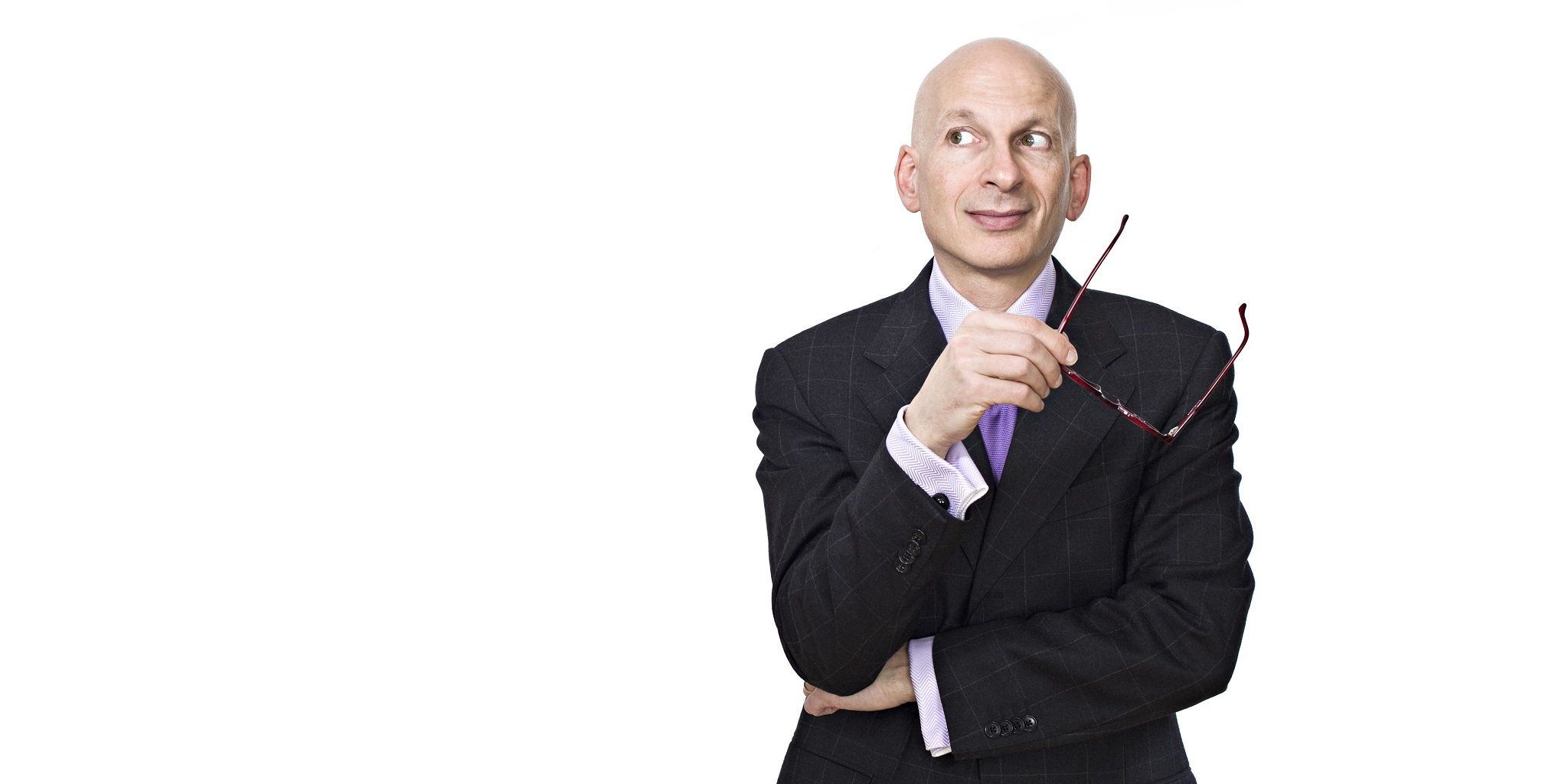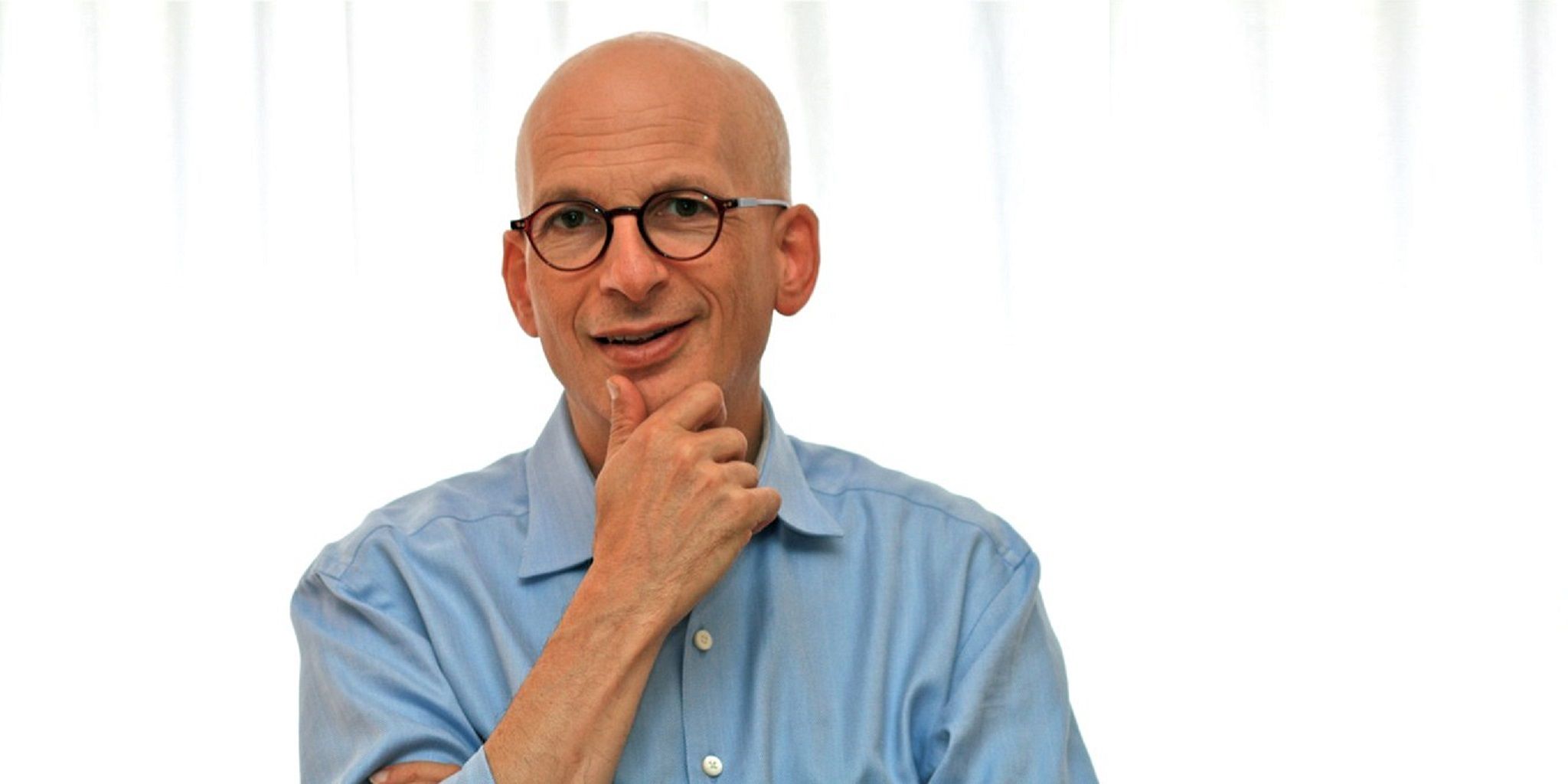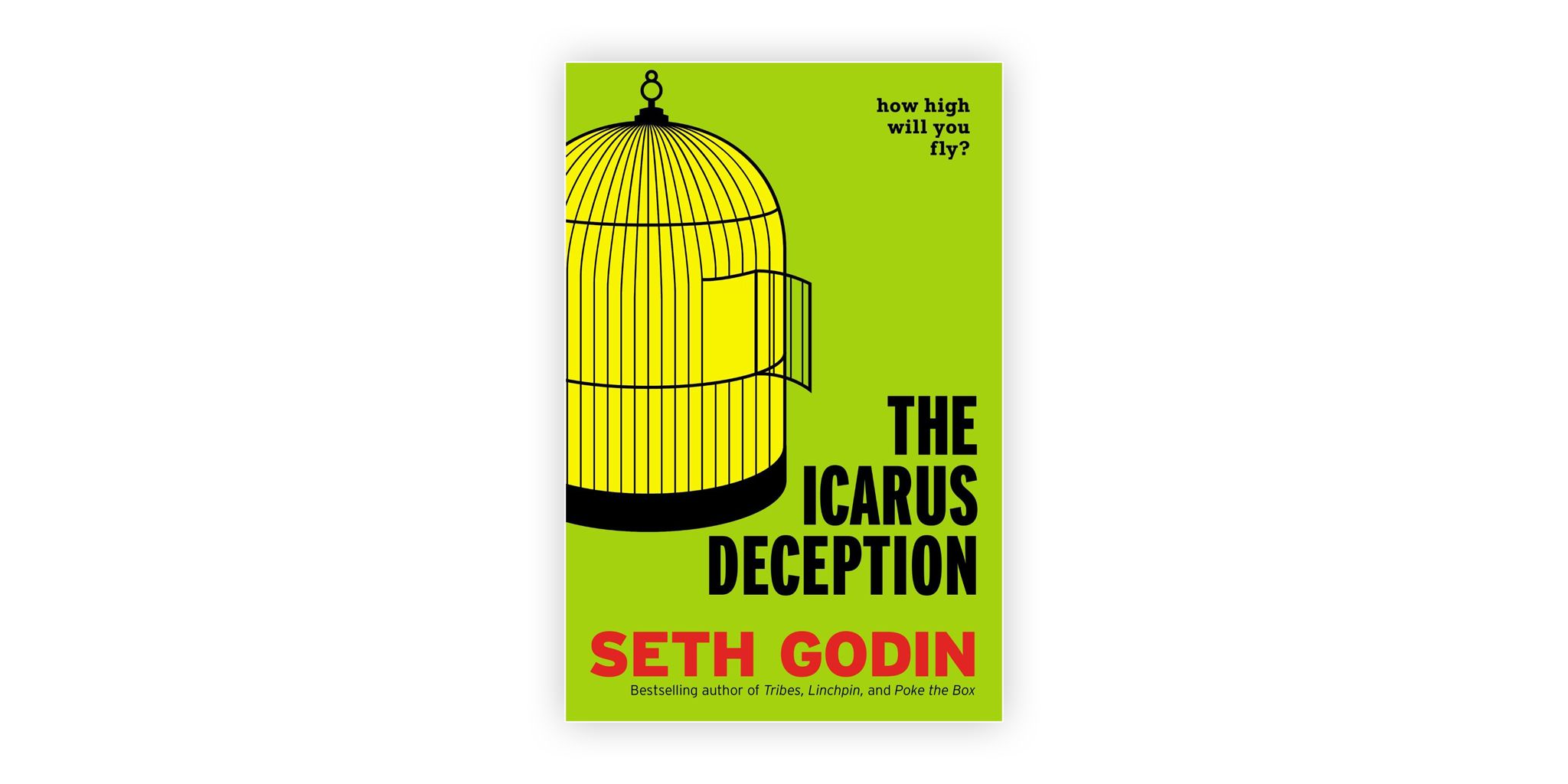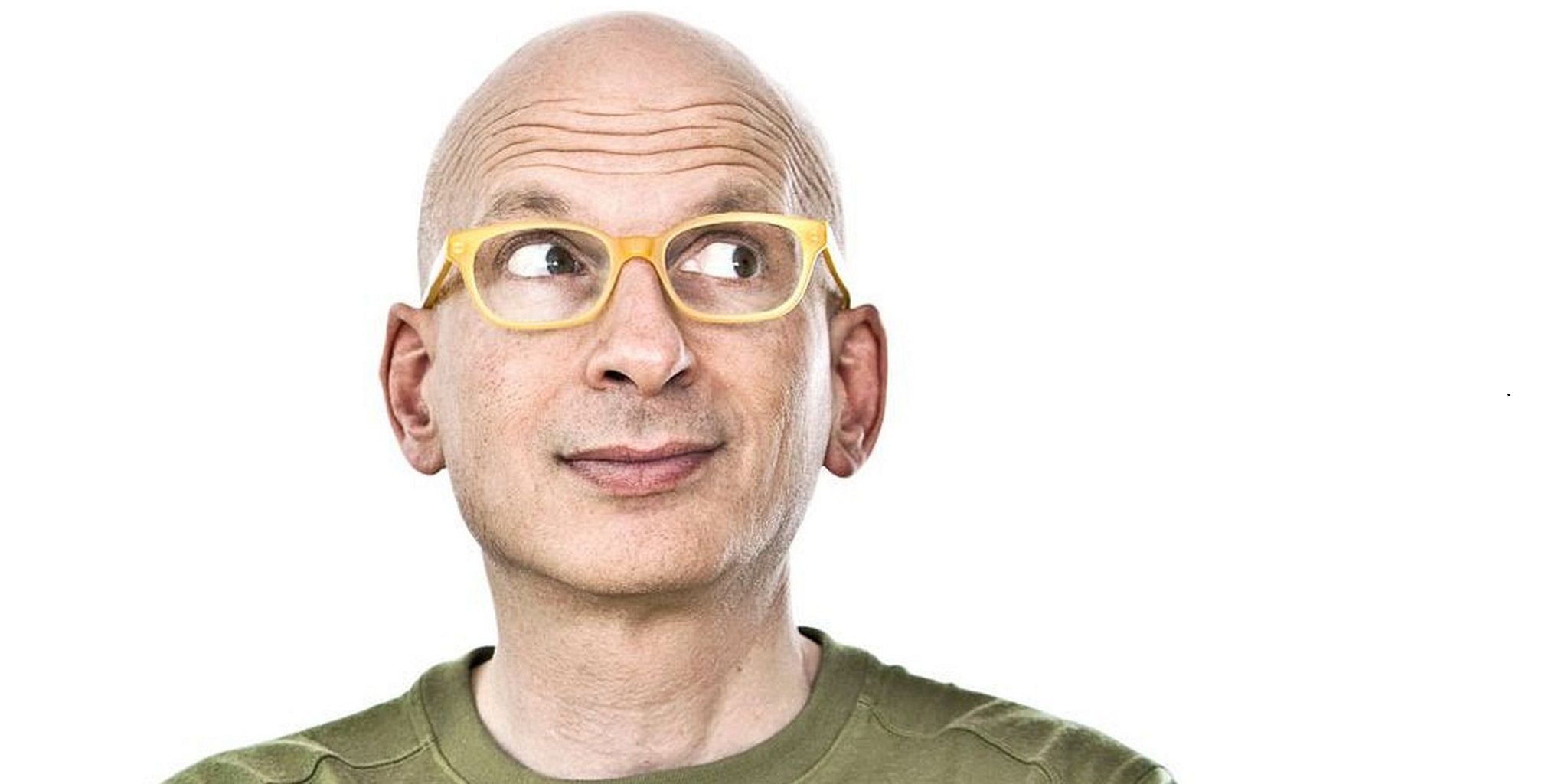Interview with Seth Godin
Michael Sliwinski: We are here from the Productive! Magazine, a magazine about productivity and you are this super-productive guy with one book a year, lots of daily blog posts … how do you get this done?
Seth: Well, I don’t go to meetings, I don’t watch television and I focus very much on things that have leverage and try very hard to avoid things that are stalling.
Michael: You don’t engage with users on Twitter or other social networks …are they a waste of your time?
Seth: I’m not sure if that’s a waste, all I’m saying is that I can’t do it very well and also do the other things that I want to do. So I go focus on things I can do well and do them with leverage and passion and don’t let the resistance slow me down.
Michael: You are starting many things. What kind of tricks do you use that help you follow through with these things?
Seth: I’m not sure it is a trick. I think that the approach that I have is that the resistance to lizard brain is a compass. If it tells me that something is uncomfortable, if it tells me that something is scary then that is exactly what I’m going to do. I look for it as a clue that I’m on the right track.
Michael: So it actually suggests to you what to do next?
Seth: That’s right. You know you have this built-in thing that shows you what the world is afraid of. And if you do that you’re probably going to be OK.
Michael: With the “Domino Project” that you’ve launched with Amazon, are you trying to shut down the whole publishing industry?
Seth: You know it is called the “Domino Project”, because we would like books to spread like dominoes. Like we have this new book coming out called “Anything You Want” and as it spreads it is going to sell more because we’ve organized it to spread. And that is what we are trying to do, we are not trying to knock down publishing like dominoes, we’re trying to spread books like dominoes.

Michael: What would you say to aspiring authors? Should they actually go and pitch the publishers or try self-publishing on Amazon?
Seth: I feel very strong that you should pick yourself. You shouldn’t be waiting for someone to pick you, to give you permission to go and make something happen. If that means working with a publisher, that’s fine, but I don’t feel that anybody should say ‘no, you can’t do that”.
Michael: You are known as the ultimate marketer with your books like “Purple Cow” and “All Marketers Are Liars” — now you switched to personal marketing with “Linchpin” and “Poke the box”. Why the switch all of a sudden?
Seth: Well, I’m not sure it’s all of a sudden. You know “the Dip” was definitely about the very same thing, and a book I wrote back in 1997 called “Get what you deserve”. The point is the marketing is not advertising. Advertising is a corporate activity that can be done by a committee, marketing is a personal activity that can be done by a human. What I found often when people are stuck on their marketing it’s because they are personally holding themselves back, it’s because somewhere along the way they have persuaded themselves that they didn’t deserve it, that they needed to wait for something, or that some other thing was holding them back. And so I needed to write about it in order for the whole thing to come together.
Michael: That totally makes sense. The next thing: practical aspects of blogging. I also blog and many people blog…but then they just stop… how do you manage to post so regularly?
Seth: Well, I think the most important thing to understand about blogging is that if you are blogging for other people you are going to be disappointed. Even if no one would read it I would still blog. And the people I know who blog passionately, all of them say exactly the same thing. So that is the way you have to look at it, you can’t say: “I’m not getting enough comments I’m not going to blog. I’m not getting enough money, I’m not going to blog.” You have to say: “this is a great chance for me to clear my thoughts and put them into the world, what an opportunity.”
Michael: Totally. Now, back to your daily routines… do you have a typical day?
Seth: I don’t have one. I’m very much focused on not having a typical day.
Michael: Ok. But you still have to focus on having time to write, right?
Seth: Well, when I want to write, I write. When I need to write, I write. I think that modelling your day on someone else is a giant mistake.

Michael: So, when you do want to write and somebody disturbs you or ask you for an interview. What do you do then?
Seth: I mean, if you talk to just about anyone doing a lot of output, they are very good at saying 'no’. I feel badly about all the places I can’t go to speak, I feel badly about all the interviews I can’t do and all those people I could reach out and coach or consult, but I can’t do that and do what I’m doing now. So, I don’t do any consulting and I rarely do all the other sorts of things although I’d like to. The discipline of saying 'no’ becomes really important.
Michael: It’s good that sometimes you do speak at conferences because then we all can watch them on YouTube — the one I enjoyed most was about the “lizard brain”. I’ve shared it with my audience, friends, family…
Seth: Yes. I think that’s worth talking about. The argument I’m trying to make is that there is something going on and we need to be aware of it so that we can do something about it. And once it has a name, once people understand what’s at stake they are more likely to take actions and do something worthwhile.
Michael: Definitely. So, if you are so busy and you have so many things to do, how do you balance your family life? How do you find time for the ones you love?
Seth: You know it is funny. People never say 'how do find time to have lunch or dinner?’ or 'how do you find time to sleep?’ We are not talking of life-lunch balance. So I’m not sure I’m interested in conversation about life-work balance. I think you have to have the discipline to have the life you want to have. And if you are stealing from one part of your life in order to make the other part work, you are going to pay for it.
Michael: Totally true. Going back to our magazine, people ask me why I do it. It’s easy, I love learning new things about productivity. Everything we do should be more about just passion and drive. What do you think?
Seth: Yes. Isn’t that the nature of the revolution we are having right now? Isn’t it the nature of what we are saying to people, we are not looking for more people to work in our factories, that’s why we have unemployment, we are saying to people 'this is your chance to do work that matters, the work that you believe in. So why don’t you step up and do it?”
I guess I would leave this interview by saying: “there is a fork in a road and you will have to decide if you take action or if you are going to stand by.” My idea for you would be to dig in deep and start taking actions.
Did you have a chance to check out Seth’s latest book: The Icarus Deception: How High Will You Fly?


